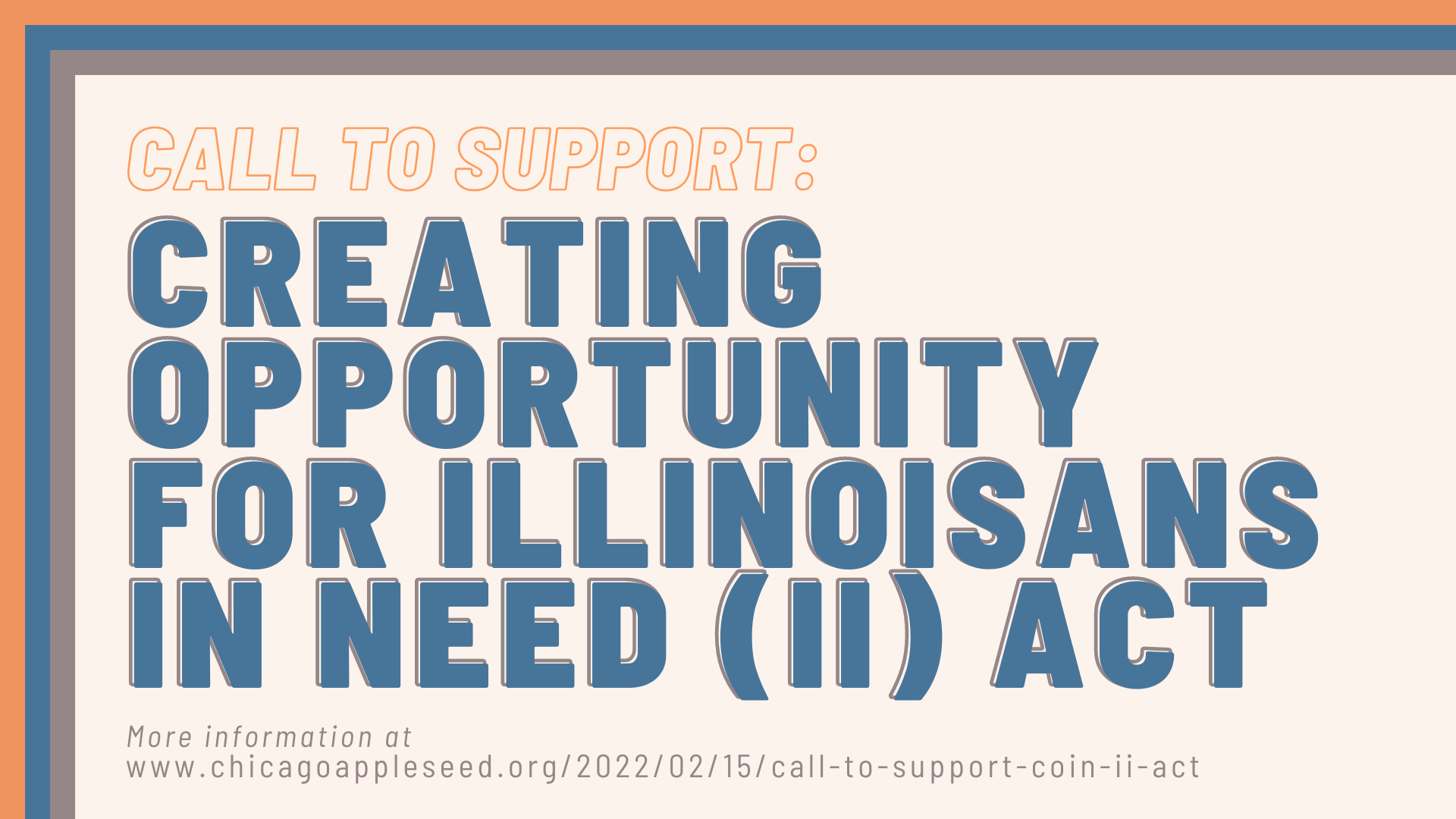Call to Support: Creating Opportunity for Illinoisans in Need (COIN II) Act
The statewide Creating Opportunity for Illinoisans in Need (COIN II) Act (IL HB 4423 and IL SB 3123) will increase monthly Temporary Assistance for Families in Need (TANF) grants to 50% of the federal poverty level and will implement a full passthrough and disregard policy for families receiving both child support and TANF benefits.
COIN II will be the first meaningful improvement to TANF benefits in Illinois since COIN I in 2018. Chicago Appleseed Center for Fair Courts and the Chicago Council of Lawyers proudly support the bill as a critical next step for supporting children in need.
The federal Temporary Assistance for Families in Need (TANF) program provides support to families living below the poverty level. Some families who receive TANF benefits also have existing child support orders for a nonresidential parent. These parents are required to withhold a portion of their paycheck to be sent monthly to the primary parent and their children. However, in Illinois, a portion of these child support payments are not passed-through to the parent also receiving TANF benefits. Instead of helping feed children and pay for educational costs, part of that child support payment goes to the state as a reimbursement for the safety net TANF funds the family received.
Currently in Illinois, these children and their primary parent are only guaranteed $100 per payment if the non-residential parent supports one child and $200 per payment if they support two children. In addition, the money that is received from the non-residential parent is factored into the calculation of the family’s income, which reduces the amount of TANF benefits the family is eligible to receive.
The COIN II Act would implement a 100% passthrough and disregard policy for families receiving TANF benefits and child support. This means that the full support payment would go to parents and their children—and none would be withheld by the state. Further, child support payments would not be considered when determining TANF eligibility and benefit amounts.
If COIN II is passed, Illinois will join Colorado as the only two states to implement 100% passthrough and disregard policies. Arguments in favor of this policy in Colorado emphasized the benefits of families’ increased household income and the potential long-term impacts of this policy on familial and individual well-being. Colorado’s process provides a model for states wishing to do the same; following the passage of this policy, the average percentage of child support orders paid per month increased from 24% in April 2017 to 32% in January 2019, and the number of TANF cases with monthly support obligations that received payments increased 4%, from 38% in 2017 to 42% in 2018.
The benefits observed in Colorado since having implemented an 100% passthrough and disregard policy would also be present if such a policy were to be implemented in Illinois. This is a necessary step to improve outcomes for families and communities in our state.
Based on Colorado’s policy implementation and observed costs, and the Illinois budget in June 2021, we estimate that the annual cost of a 100% passthrough and disregard policy — around $22 million — represents 12.7% of the Illinois TANF annual budget. Total TANF funding is 2.34% of the Illinois Department of Human Services’ $8 billion budget and just 0.2% of the state’s total budget of $95 billion. The estimated cost of the passthrough policy is just a fraction of both of these budgets and could be easily afforded by the State of Illinois.
Chicago Appleseed is a strong advocate of Illinois adopting a 100% passthrough and disregard policy. Such a policy has been a large success in Colorado, and we believe that it will provide life-changing benefits for children and families. The COIN II Act would increase the transparency and fairness of child support orders and allow families to build towards financial security.
We hope to see the COIN II Act succeed and encourage you to contact your Illinois senators to support the bill as it moves forward.
Written by Elizabeth Solleder, Northwestern University Undergraduate Intern for Chicago Appleseed Center for Fair Courts.

